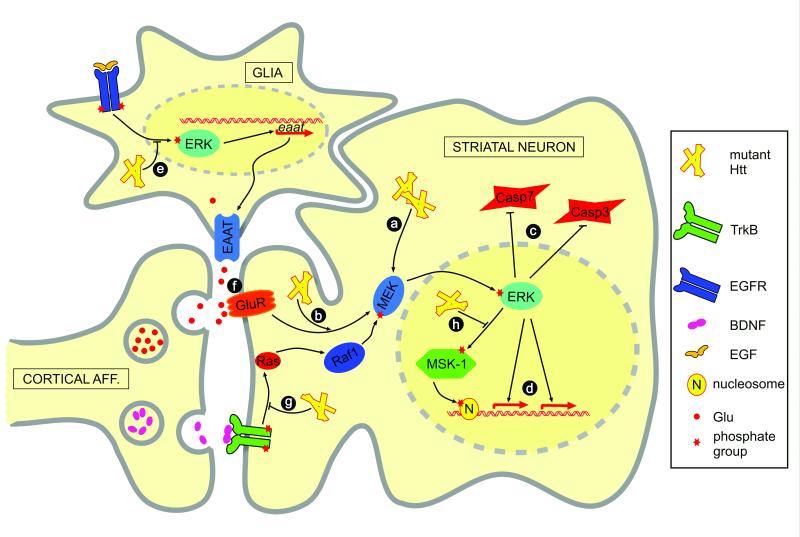Figure 2.
The ERK pathway is implicated in Htt pathogenesis in a complex manner. Mutant Htt may upregulate the ERK pathway either cell autonomously (a) or by enhancing the activating effect of glutamate signaling (b). Activated ERK contributes to cell survival by inhibiting caspase activation (c) and directing a transcriptional response (d). In glial cells, mutant Htt downregulates EGF and ERK dependent expression of EAAT glutamate transporters (e), which might lead to increased glutamate signaling in neuronal cells and eventual potential excitotoxicity (f). The protective transcriptional effects of corticostriatal BDNF signaling are mediated by the ERK pathway. Mutant Htt compromises the BDNF response both upstream and downstream of ERK, by inhibiting the activation of the Ras GTPase (g) or the MSK-1 kinase (h) that phosphorylates H3S10 in the chromatin and contributes to c-fos expression, respectively. Thus, the response to Htt challenge is mixed and involves both activation and dampening of different up- or downstream branches of the ERK cascade. Pharmacologic intervention with compounds that can selectively activate or enhance desirable responses while avoiding the non-desirable ones would provide attractive agents for treatment.

